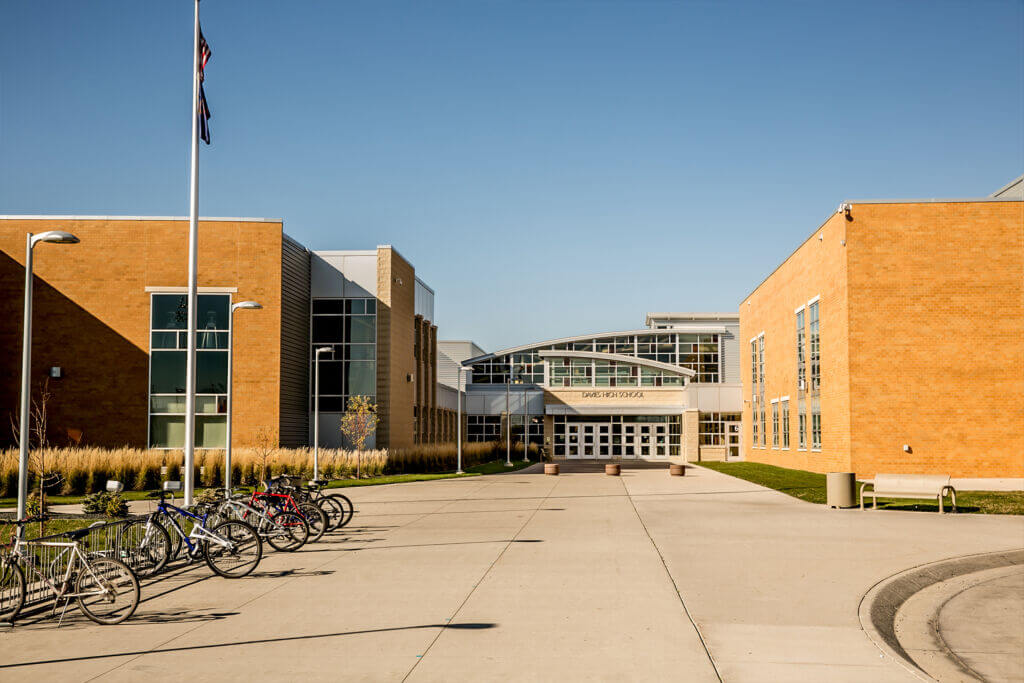11.01.24
How Voting No on Measure 4 will Preserve Local Autonomy
By Cale Dunwoody, Vice President of Public Policy, The Chamber

Davies High School in Fargo, North Dakota.
As residents of a vibrant community, we have long relied on the ability to make local decisions that reflect our shared values, needs and ambitions. But with Measure 4 on the ballot, our community’s autonomy and capacity to control critical funding decisions could be at stake.
Here’s why a “No” vote on Measure 4 is essential for preserving local control over our future, maintaining the integrity of our community’s voice and ensuring we can meet our unique needs.
The Threat to Local Decision-Making
Local control is a bedrock principle for addressing community-specific issues. When cities and counties manage their own property tax systems, they can direct funds toward what matters most locally—schools, emergency services, infrastructure and economic development projects. Measure 4, however, would remove this local authority over property tax decisions, shifting these critical choices to a central authority, the State.
Passing Measure 4 would limit our ability to adjust budgets based on real-time needs. Instead of a responsive approach to local issues, we would face a one-size-fits-all framework that doesn’t account for the unique challenges or opportunities within our rapidly growing community.
Funding for Critical Community Initiatives are at Risk
Consider the crucial programs and services that depend on local tax revenue: schools, public safety and community development projects, to name just a few. These initiatives require funding flexibility to remain effective and relevant. When an emergency arises, local leaders can adjust resources as needed, whether it’s hiring more police officers, fixing roads after a harsh winter or upgrading school facilities to support our growing population.
Without the ability to manage property taxes locally, these types of responsive actions would be more challenging. Measure 4 could lead to funding shortages that impact essential services, making it difficult to adapt to our community’s needs. Schools may experience cuts, public safety could suffer from reduced staffing and infrastructure projects could face delays. Local leaders understand our needs best and should retain the authority to allocate resources appropriately.
Loss of Community Identity and Values
Our community has a distinct identity, shaped by the people who live here and invest in its success. Measure 4 jeopardizes our ability to make decisions that align with our values and long-term goals. By centralizing tax control, we risk losing the influence and autonomy needed to foster a vibrant community that reflects who we are.
Local control of taxes ensures that decisions about funding stay within our community, with people who understand the local landscape, economy and aspirations. Without this, decisions may be based on broader, state-level interests that don’t prioritize our specific needs or vision. Voting “No” on Measure 4 means protecting the values we share and the goals we strive to achieve together.
Keeping the Power in the Hands of the Community
A “No” vote on Measure 4 isn’t just about rejecting a policy; it’s about affirming the power of local communities to govern themselves. With local control, our elected officials—individuals who live in, contribute to and know our community—can continue making decisions based on real, current feedback from residents. This accountability ensures that decisions are not only effective but also reflect the best interests of the people they serve.
Measure 4 threatens to take away this power, creating a gap between decision-makers and the community members who will feel the impact of their choices. Instead of going to City Hall to visit with local leaders, citizens will be forced to travel to our state Capitol in Bismarck and make their case to legislators from across the state. Local control is a way of empowering communities, ensuring that our voices aren’t lost in the larger, more complex mechanisms of state governance.
Why Voting No on Measure 4 Matters
Measure 4 challenges the very foundation of our local governance, undermining our ability to respond to the unique needs of our community and stripping away a critical aspect of our self-determination. A “No” vote is a vote for preserving our autonomy, ensuring that funding decisions remain in the hands of those who know our community best, and safeguarding the services and initiatives that keep our community thriving.
As residents, it’s up to you to protect the integrity and responsiveness of our local government. By voting “No” on Measure 4, you can continue to take a stand for a future where your voice matters, our community’s needs must be prioritized, and we must maintain the flexibility to adapt and grow together.
SHARE
More Stories
Upcoming Events
